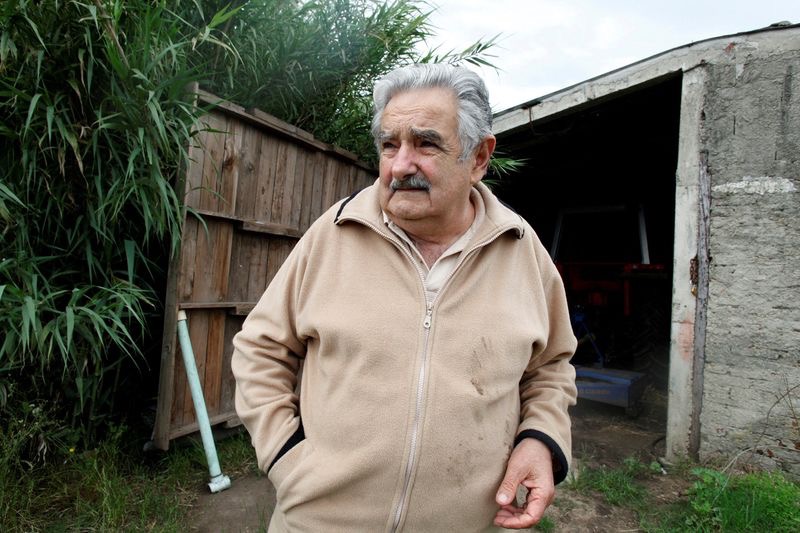Jose Mujica, the former president of Uruguay known worldwide as the “world’s poorest president,” has passed away at the age of 89. Renowned for his unassuming lifestyle and dedication to social justice, Mujica’s presidency left an indelible mark on Uruguay and the global political landscape. From his simple lifestyle to his groundbreaking progressive policies, his leadership defied conventional expectations and garnered admiration across the world.
Early Life and Political Beginnings
Born on May 20, 1935, in the rural town of Paysandú, Uruguay, Jose Mujica’s life was anything but ordinary. Before entering politics, Mujica was a member of the Tupamaros, an urban guerrilla group in the 1960s and 1970s that fought against the oppressive political regime in Uruguay. His involvement in the group led to his arrest, where he spent over 13 years in prison under harsh conditions.
Upon his release in 1985, Mujica transitioned to a more traditional political role, aligning himself with the left-wing political party, the Broad Front (Frente Amplio). Over the years, Mujica climbed the political ladder, becoming a senator in 2005 and eventually winning the presidency in 2010.
Mujica’s Presidency: A Simple Life in Power
During his presidency (2010-2015), Mujica became famous for living a life that contrasted sharply with the luxury often associated with political leaders. Mujica’s decision to live on a modest farm with his wife, Lucia Topolansky, and to drive a simple, aging Volkswagen Beetle, rather than a luxury car, became symbolic of his commitment to simplicity and humility.
Despite holding the highest office in the country, Mujica opted to donate 90% of his presidential salary to charity, often reiterating that politicians should be servants of the people rather than seeking personal enrichment. His frugal lifestyle and dedication to social causes earned him the title of the world’s poorest president, a title he embraced with pride.
Progressive Achievements
Mujica’s presidency was marked by a series of bold and progressive policies that addressed some of Uruguay’s most pressing social issues. Among his most notable achievements was the legalization of same-sex marriage in 2013, making Uruguay the first country in Latin America to approve such legislation. This move was hailed as a significant step for LGBTQ+ rights in the region.
Another landmark achievement during Mujica’s presidency was the legalization of marijuana in 2013. Under his leadership, Uruguay became the first country in the world to fully regulate the production, sale, and consumption of marijuana. This policy aimed to reduce drug-related violence and empower the government to regulate the drug market, ultimately providing a model for international drug policy reform.
Mujica also focused on economic stability, poverty reduction, and environmental sustainability. He worked to promote social justice by increasing access to education, healthcare, and housing for Uruguay’s most vulnerable populations. Under his leadership, Uruguay made notable strides in renewable energy, with nearly 90% of the country’s electricity coming from renewable sources by the end of his term.
Mujica’s Global Impact and Diplomacy
Internationally, Mujica was known for his emphasis on diplomacy, peace, and dialogue. He was vocal about the need for global leaders to work together to address climate change and human rights issues. His approach to foreign policy was grounded in mutual respect, advocating for peaceful resolutions to conflicts rather than military intervention.
One of his most significant roles on the international stage was in facilitating peace talks between Colombia’s government and the Revolutionary Armed Forces of Colombia (FARC). His involvement in these peace negotiations earned him the respect of world leaders and demonstrated his commitment to global peace.
The Legacy of Jose Mujica
Jose Mujica’s death marks the loss of one of the most influential leaders of his generation. His legacy is characterized by a political philosophy rooted in humility, equality, and social justice. His presidency set an example of how leaders can serve their people without seeking personal wealth or power.
Mujica’s focus on social issues, human rights, and environmental sustainability left a lasting impact on Uruguay. He successfully navigated the complexities of modern governance while remaining true to his principles of simplicity and service to others. Uruguay, under his leadership, became known not only for its economic stability but also for its progressive values.
His decision to prioritize people over personal wealth will be remembered as one of the defining features of his presidency. Even after his term ended, Mujica continued to speak out on global issues, urging leaders to take responsibility for their actions and to work towards a more just and equitable world.
Jose Mujica’s Influence on the World
Mujica’s influence extended far beyond the borders of Uruguay. His leadership resonated with individuals around the world who were disillusioned with political elites and sought a more transparent, humane approach to governance. His style of leadership, marked by simplicity, transparency, and unwavering principles, was a stark contrast to the often corrupt and self-serving nature of many political figures.
His life proved that it is possible for a leader to remain humble, authentic, and committed to their people, regardless of the power they hold. In a time when many political figures are criticized for their excesses and lack of accountability, Mujica’s example continues to inspire individuals and politicians alike.
The passing of Jose Mujica marks the end of an era in Uruguayan and global politics. His legacy as the “world’s poorest president” will continue to inspire future generations of leaders to prioritize the well-being of their citizens over personal gain. Through his policies and actions, Mujica demonstrated that true leadership is not defined by wealth or status, but by integrity, service, and a deep commitment to justice.
As the world reflects on his passing, it is important to remember the lessons that Mujica imparted during his lifetime: that leadership should be about humility, compassion, and a dedication to creating a fairer, more sustainable world. His life was a reminder that in politics, the greatest power lies not in accumulating wealth or fame, but in serving others with humility and purpose.













